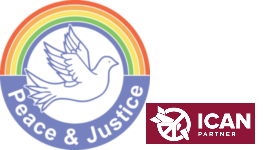Edinburgh Peace & Justice Centre was founded in 1980 by Geoffrey and Elizabeth Carnall. The couple had been involved in anti-war campaigning over many years, and were renowned for their gentle and generous Quaker hospitality. The small resource centre they set up was a base for the conversations and friendship that Geoffrey and Elisabeth enjoyed so much as they nurtured the project carefully until their deaths in 2015.
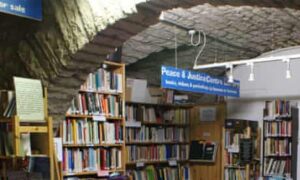
Edinburgh Peace & Justice Centre’s best-known and longest location – underneath St. John’s Church on Prince’s Street.
Co-ordinators of the P&J over the years have included Janet Fenton who talks about her time at the centre here and most recently Brian Larkin, who oversaw an excellent peacebuilding in schools project and the peace cranes project that saw 140,000 origami peace cranes ‘fly’ in St. John’s Church to mark the 75th anniversary of the US bombing of Hiroshima, and as part of a steering group campaigning for an Opposing War Memorial, petitioned Edinburgh city council for a place for it in Princes Street Gardens
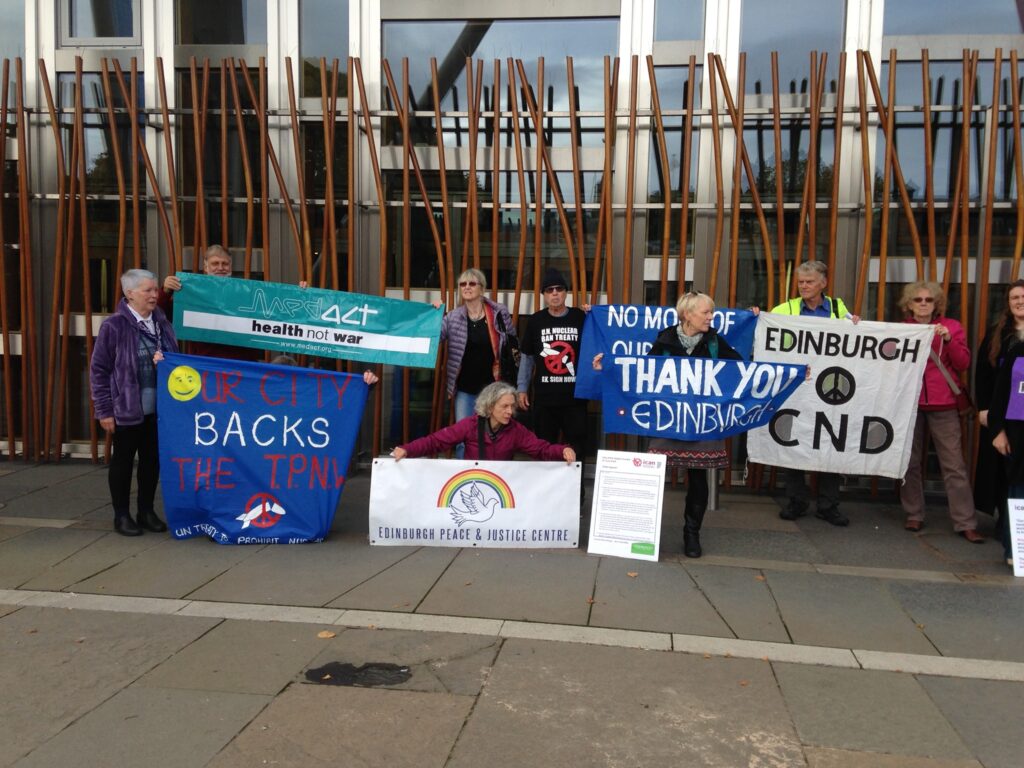
In 2020, members of Edinburgh Peace & Justice Centre voted to establish the centre as a nationwide organisation campaigning for peace, and so the centre was renamed simply as ‘Peace & Justice’
Here you can see some pictures from the peace cranes exhibition in 2021 – this was the culmination of five years’ collecting 140,000 origami peace cranes from around the world to remember the first victims of nuclear weapons when the US bombed Hiroshima in 1945.
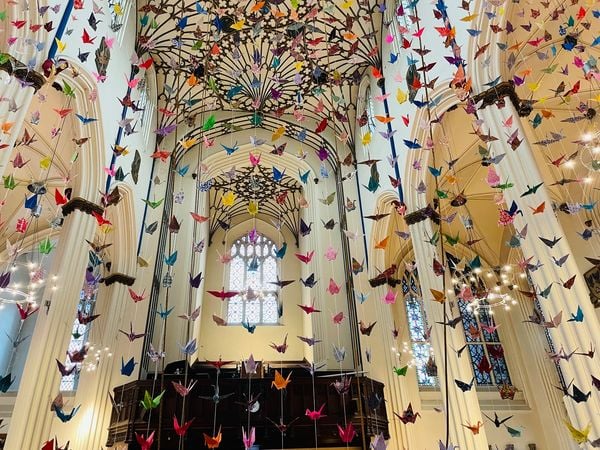
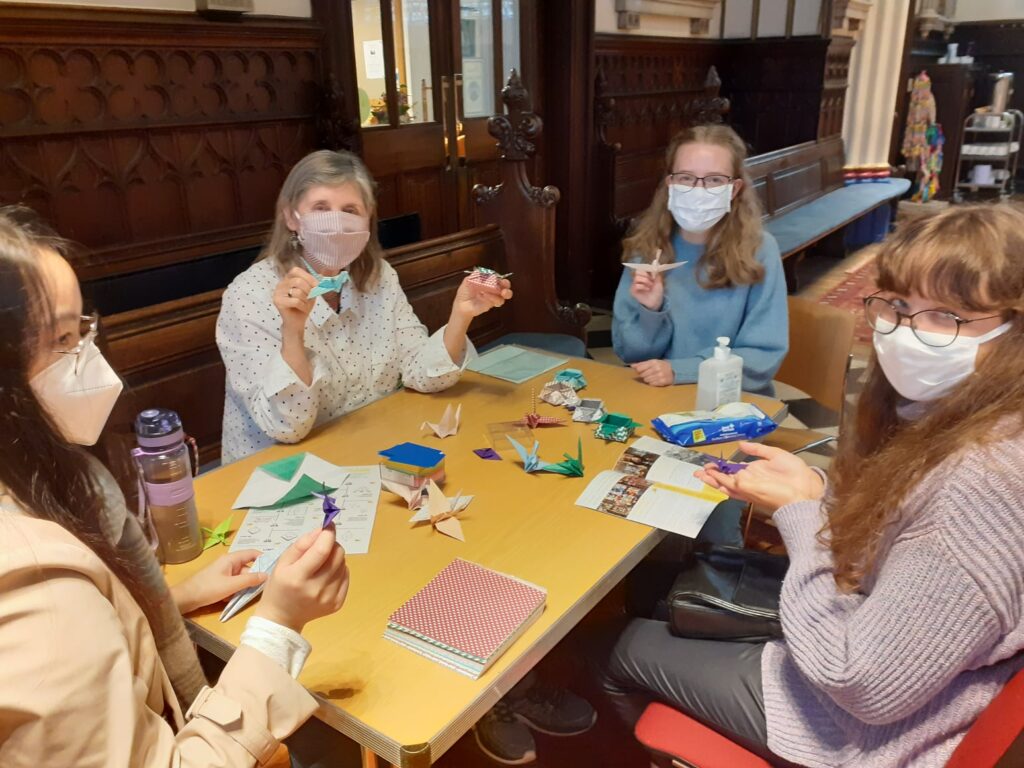
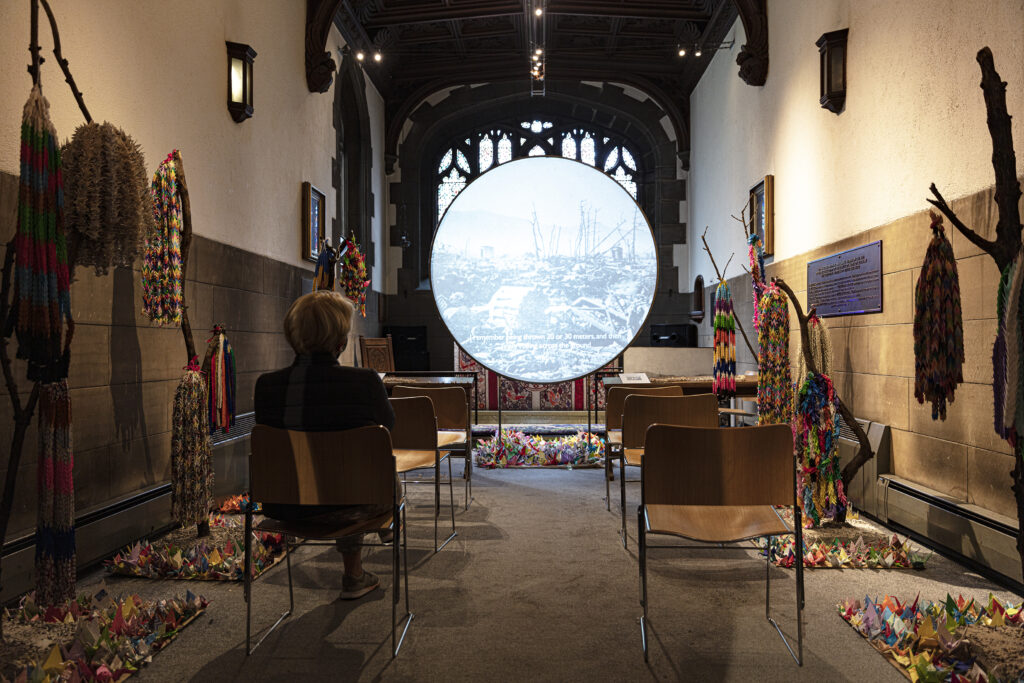
And in 2022 curators Heather Kiernan and Iliyana Nedkova created a follow-up exhibition ‘Consequences’ – about the impact of nuclear bombs and war more recently.
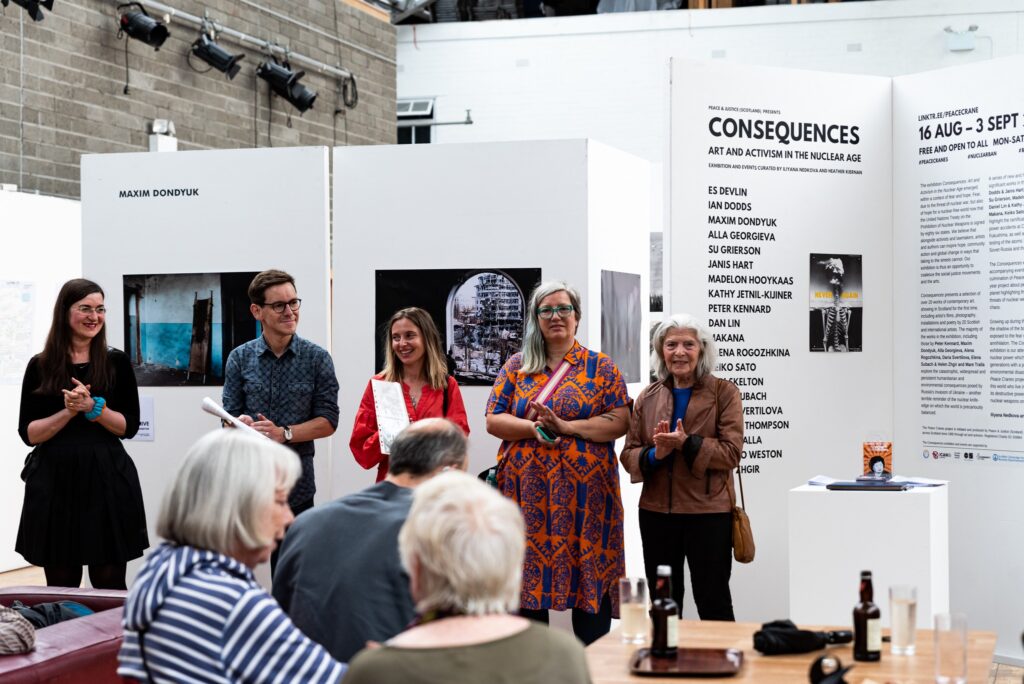
We have also regularly marked Conscientious Objectors day on May 15th with a vigil in Edinburgh, and try to organise alternative remembrance day events around 11 November, including the selling of white poppies.
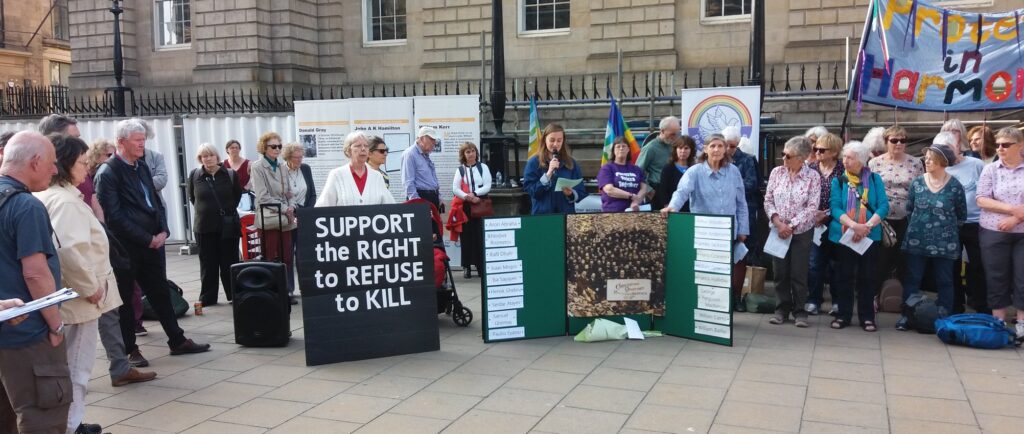
More about Geoffrey and Elisabeth Carnall
Geoffrey Carnall was known as an exceptional scholar when he was studying English Literature in 1945 at Magdalen College, Oxford, and was also already active in politics and peace activism. He had registered as a conscientious objector in 1944 and consequently served in the Friends Service Unit in India from 1948–50. There he came under the Quaker influence of Horace Alexander and explored Alexander’s Gandhian non-violence as India and Pakistan struggled on the brink of war. After India he returned to academia, first in Belfast and then in 1960 Edinburgh, where he met his wife Elisabeth Seale Carnall, founder of the Quaker Women’s Group and long standing supporter of Campaign Against the Arms Trade. Geoffrey was deeply involved in the peace movement, including direct action and a court case (which he won) on the legitimacy of leafleting people as they left the famous Edinburgh military tattoo. He and Elisabeth were renowned for their gentle and generous Quaker hospitality, and together they set up a small resource centre that has since grown into Peace and Justice Scotland. The centre was a base for the conversations and friendship that Geoffrey and Elisabeth enjoyed so much as they nurtured the project carefully until their deaths in 2015.
The legacy they left to the enterprise includes an annual award which in 2022 was given to Professor Paul Rogers, who delivered the annual lecture in their name.

Watch the recording of Paul Roger’s lecture
In 2021 we awarded the Carnall Peace Award to Yemeni human rights organisation Mwatana and held an online event featuring art and music by Shatha Altowai, Yemeni visual artist and Saber Bamatraf, Yemeni pianist and composer as well as talks by Mwatana’s chair person Radhya Al-mutawakel. Watch the event again here

